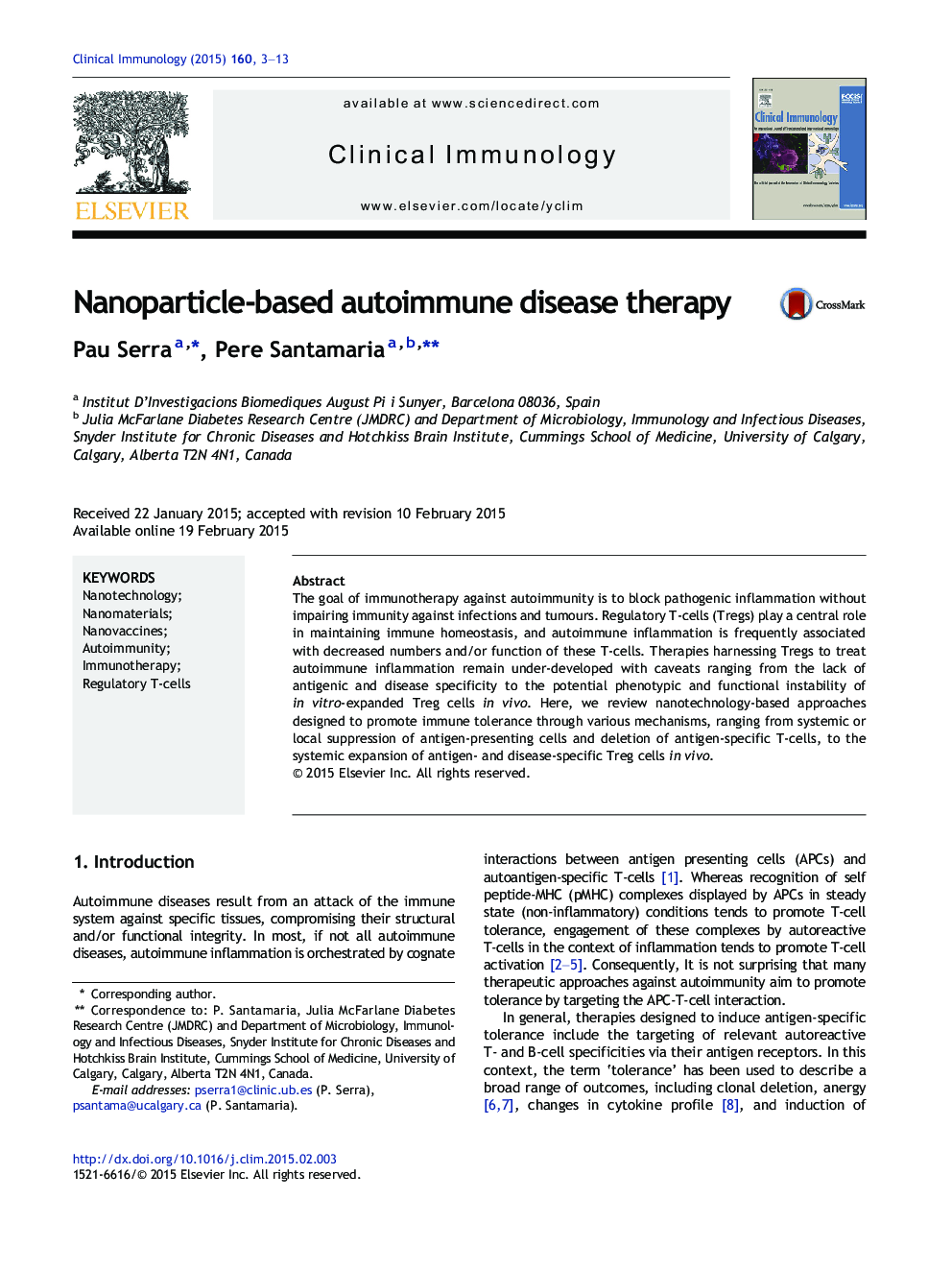| Article ID | Journal | Published Year | Pages | File Type |
|---|---|---|---|---|
| 3256825 | Clinical Immunology | 2015 | 11 Pages |
•Nanoparticles as vehicles for immunomodulators•Nanoparticles as vehicles for antigen delivery to APCs•Nanoparticles as direct T-cell targeting compounds
The goal of immunotherapy against autoimmunity is to block pathogenic inflammation without impairing immunity against infections and tumours. Regulatory T-cells (Tregs) play a central role in maintaining immune homeostasis, and autoimmune inflammation is frequently associated with decreased numbers and/or function of these T-cells. Therapies harnessing Tregs to treat autoimmune inflammation remain under-developed with caveats ranging from the lack of antigenic and disease specificity to the potential phenotypic and functional instability of in vitro-expanded Treg cells in vivo. Here, we review nanotechnology-based approaches designed to promote immune tolerance through various mechanisms, ranging from systemic or local suppression of antigen-presenting cells and deletion of antigen-specific T-cells, to the systemic expansion of antigen- and disease-specific Treg cells in vivo.
